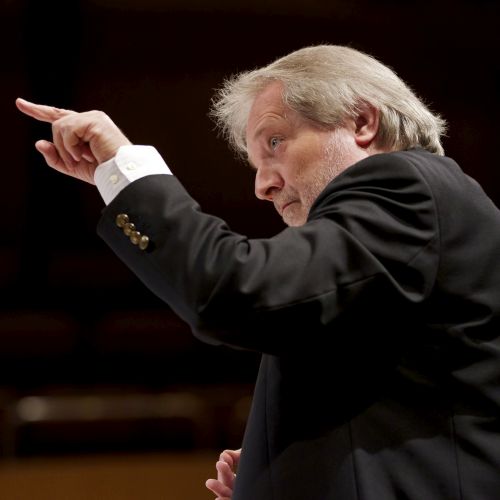 Germany Musikfest Berlin 2014 – Rihm, Eötvös, Brahms: Patricia Kopatchinskaja (violin), Berliner Philharmoniker/Péter Eötvös (conductor), Philharmonie, Berlin, Germany 13.9.2014 (MC)
Germany Musikfest Berlin 2014 – Rihm, Eötvös, Brahms: Patricia Kopatchinskaja (violin), Berliner Philharmoniker/Péter Eötvös (conductor), Philharmonie, Berlin, Germany 13.9.2014 (MC)

Wolfgang Rihm: IN-SCHRIFT 2
Péter Eötvös: Violin Concerto No. 2 ‘DoReMi’
Johannes Brahms (arranged for orchestra by Arnold Schoenberg): Piano Quartet No. 1 in G minor, Op. 25
This Berliner Philharmoniker concert celebrated the seventieth birthday year of the Hungarian born composer and conductor Péter Eötvös who took the baton in a fascinating programme that included one of his own compositions. Also present in the audience was the German composer Wolfgang Rihm who was having one of his own works performed.
Rihm has been the beneficiary of a healthy number of commissions and his music is frequently seen on concert programmes in Germany. The excellent opening work of the evening, Rihm’s IN-SCHRIFT 2, was a commission for the fiftieth anniversary celebrations of the Philharmonie designed by architect Hans Scharoun. A work devised to utilise spatial effects in the Berlin concert hall sees Rihm looking back to the antiphonal chant of the Middle Ages and the Renaissance polychoralism. Rihm positioned clarinets and percussionists on the terraces around the body of the hall. On the stage the main orchestra without high strings contained a quartet of woodwind: flute, oboe, cor anglais and bass clarinet sited in front of the conductor’s podium. With the assured Eötvös controlling the body of sound shifting through the various instrumental clusters there was always something interesting happening. Overall Rihm’s writing as it recurrently increased in weight then correspondingly took on a dark, rather sinister character.
Next Péter Eötvös conducted his own Violin Concerto No. 2 entitled ‘DoReMi’ played by the young Moldovan-Austrian violinist Patricia Kopatchinskaja. Eötvös based the title ‘DoReMi’ on Midori’s name the dedicatee who premiered the work and other factors such as Do-Re-Mi being the start of music the equivalent 1, 2, 3 in the number system and the notes from which the work was constructed. Opening with a triangle and woodwind figures the writing becomes restless in character and at times disconcerting, almost creepy. A player with a large heart and even bigger personality the barefooted Kopatchinskaja with her long dark hair, dressed in a white sleeveless gown with orange detailing seemed totally committed to the work from the first note to the last. Kopatchinskaja’s lyrical violin playing shone bright like a beacon through the dark anxiety laden orchestral soundworld.
After the interval the single work was the Brahms Piano Quartet No. 1 in G minor, Op. 25 so adeptly arranged for orchestra by Arnold Schoenberg in 1937 during his American exile possibly at the suggestion of Otto Klemperer. Almost immediately the opulent tone from the great Berliner Philharmoniker displayed Brahms’s colourful and melodic writing at its very finest. Throughout the four movement score it was easy to let the warm rich sound just wash over like a calming balm. Fresh and bright the second movement Intermezzo, opened so beautifully by principal oboe Albrecht Mayer, evoked the verdant Alpine pastures and I detected a distinct Bruckner-like magnificence to the Andante. Although I didn’t feel the celebrated Rondo alla Zingarese finale in this arrangement was as successful as Brahms’s original, it was exuberantly played by the Berliners, colourful and wild like a Hungarian dance.
Two reasonably challenging twentieth-century works and a splendid Brahms work in a different guise presented no problem to the excellent players of the Berliner Philharmoniker.
Michael Cookson